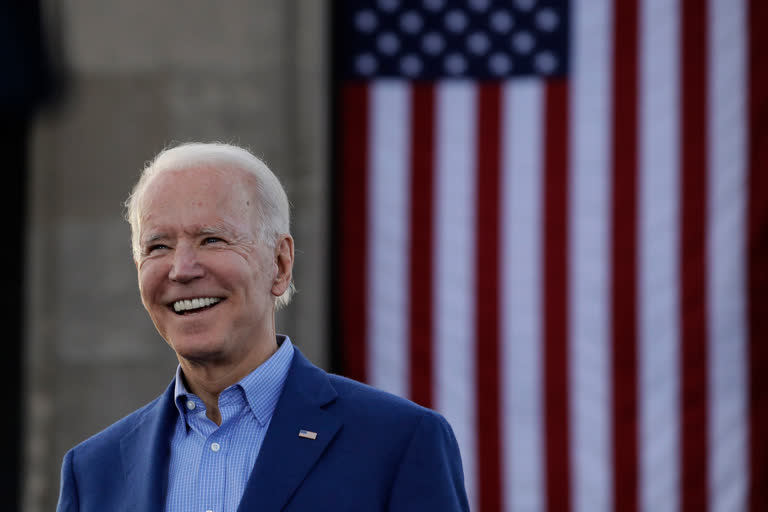Washington: Joe Biden has longed to win the White House for more than three decades. If he finally makes it thereafter November's election, he's already talking about leaving.
In an effort to ease concerns about his age, the 77-year-old presumptive Democratic nominee has said he wouldn't seek reelection if his mental or physical health declined. He has also referred to himself as a “transition candidate," acting as a bridge to a younger generation of leadership.
Biden is rarely known for sticking to a script, and the comments are evidence of his candid style. But they're also contributing to intense speculation about who is best positioned to lead the party after him.
“We do have a long bench as Democrats, a younger bench in terms of elected leadership all across the country,” said Democratic strategist L. Joy Williams, chairwoman of Higher Heights PAC, which promotes and supports African American women as candidates and officeholders.
Biden has not ruled out running for a second term, in part because such an explicit pledge would immediately render him a lame duck in Washington, where political capital will be needed to manage the coronavirus recovery.
But the question of his long-term prospects looms over his candidacy, especially as he considers his options for vice president.
While someone like Elizabeth Warren could broaden Biden's appeal among progressives, the 70-year-old Massachusetts senator wouldn't be the face of a new generation many in the party are seeking. That might be an advantage for younger contenders, such as California Sen. Kamala Harris, 55, or Minnesota Sen. Amy Klobuchar, 59.
Read more:US Prez election: Trump's rival is coronavirus, not Biden
It's an awkward dynamic for Biden, whose lead in the Democratic primary coincided with the onset of a pandemic, making it harder to establish himself as the party's unquestioned leader. He can ill afford chatter about who might succeed him when he still faces a competitive race against President Donald Trump in the fall.
There are few historical precedents for a president opting against reelection. None has passed up a chance at a second term after just four years in the White House since shortly after Reconstruction. President Lyndon B. Johnson declined to seek a second, full term in 1968 but was already in office five years by then because of John F Kennedy's assassination.
There's also no guarantee that Biden's running mate will be the immediate president-in-waiting he envisions. Biden has pledged to pick a woman, but virtually no one under active consideration is likely to satisfy all Democrats. That raises the prospect of a primary battle in 2024 if he steps aside.
Republican pollster Chris Wilson said Biden might elevate several younger Democrats to Cabinet positions to deliberately set up “almost a hand-picked primary pool rather than a single candidate he tries to hand things off to.”
